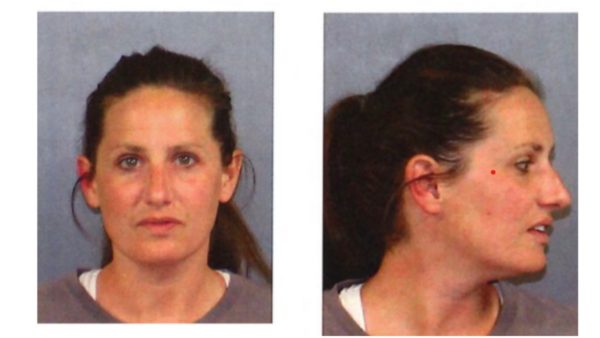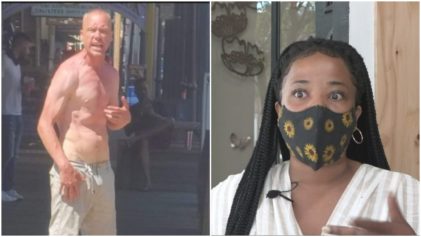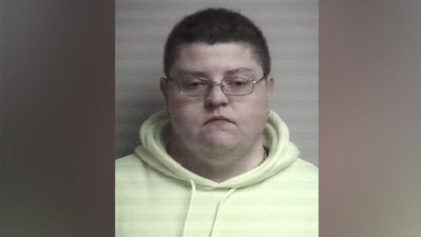A Rhode Island woman who targeted a Black family last year when she made racist remarks about them was found guilty of disorderly conduct by a judge on Tuesday, although the state attorney general has criticized part of the judge’s ruling.
Dr. Christine Longo (her status as a physician was revealed by her attorney after her bench trial), a 34-year-old woman from South Kingstown, ran afoul of the law for berating Adote Akpabie, his wife and two daughters, as the family vacationed in Narragansett in June 2020.
Although Associate Judge James Caruolo found Longo guilty of disorderly conduct, he ruled that she had not committed a hate crime. If Longo had been found guilty of violating the state’s rarely used hate crimes law, she would have faced an enhanced sentence.

Under the law, prosecutors must prove that the defendant “intentionally selected the person against whom the offense is committed” because of their “hatred or animus toward the actual or perceived disability, religion, color, race, national origin or ancestry, sexual orientation, or gender of that person.”
The guilty verdict comes after Longo’s attorney Chad Bank last week requested that Caruolo dismiss the case, arguing that his client’s words were offensive but protected by the First Amendment.
“The rule of law is clear,” Bank said. “Offensive and hateful speech is protected.”
Caruolo rejected Bank’s request, calling Longo’s remarks to Akpabie and his family “fighting words.”
On Tuesday, Caruolo again expressed his disdain for Longo’s conduct.
“Your conduct, your language, was vile and disgusting, quite frankly,” he said. “I don’t know why the state didn’t charge with with an assault charge. Had they charged you with that, there’s a very good chance you would be taking a ride to the ACI right now.”
Akpabie and his family were at the Coast Guard House restaurant in Narragansett in June when they were subjected to Longo’s racist tirade.
“Look at this [expletive] Black guy,” Longo said when she saw Akpabie walking in the restaurant to reserve a table, according to a witness. “Go back where you came from.” The woman then began to shout at Akpabie’s wife and two teenage daughters, who were waiting outside of the restaurant.
“Blacks don’t belong here,” Logo told Akpabie’s wife and daughters, according to police
Akpabie, a cargo plane pilot of East Providence, emigrated to the U.S. from the West African nation of Togo decades ago. He and one of his daughters testified during the trial. Akpabie said he was “a bit surprised,” by Longo’s remarks. He also testified that Longo stood within inches of his younger 14-year-old daughter and yelled at her.
Laudela, his 18-year-old daughter, testified that she felt “humiliated” and “unwelcome” on the day of the incident.
On the misdemeanor charge, Longo was sentenced to six months probation and must complete 50 hours of community service. In addition, she was ordered a no trespass order to the restaurant and must attend anger management counseling and diversity training. The judge also issued a no-contact order preventing Longo from interacting with the Akpabie family. Longo will not face jail time since the hate crimes law was not applied. She is appealing the verdict.
Caruolo agreed with Bank that petty misdemeanors like disorderly conduct are not included specifically in the hate crimes statute, and said he can’t change the law from the bench.
“This court does have authority or the autonomy to simply expand statutes on a whim,” Caruolo said.
But State Attorney General Peter Neronha believes Longo’s sentence isn’t enough, alleging she did commit a hate crime and should face the harsher sentence of up to one year in prison.
“We respectfully disagree with the Court’s narrow reading of Rhode Island law regarding whether the hate crime sentencing enhancement applies to the crime of disorderly conduct, the misdemeanor of which the defendant was justifiably convicted,” Neronha told NBC 10 News on June 9.
“In this Office’s view, the plain language of the sentencing enhancement statute demonstrates that the law applies to all crimes — felonies and misdemeanors alike — of any kind. We will continue to take that position on appeal in the Superior Court and, if necessary, seek legislative change,” his statement continued.


